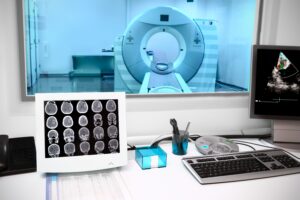When undergoing a CT scan or PET scan for cancer detection, a skilled diagnostic radiologist in Dallas is responsible for interpreting the images and providing a professional diagnosis. Unlike the Wizard of Oz, this expert is a trained medical doctor who carefully analyzes the images to issue a comprehensive report. Here’s what you need to understand about the crucial role of diagnostic radiology in cancer diagnosis.
Southwest Diagnostic Center for Molecular Imaging Radiologists Behind the Screen
Radiologists are medical doctors who specialize in the diagnosis and treatment of injuries and diseases using medical imaging procedures like computed tomography (CT), and positron emission tomography (PET).
A radiologist uses these advanced imaging tools to find the cancer, discover if it has spread, and then monitor how your body is responding to current treatments.
Radiologists complete at least 13 years of training. They are certified by the American Board of Radiology and have specific requirements for continuing education throughout their career.
Frequently Used Imaging Tools
Southwest Diagnostic Center for Molecular Imaging uses the following imaging tools at our imaging center in Dallas to diagnose, manage, and assist your oncology care team in monitoring your progress.
CT Scans
A CT scan is one of the imaging tools used frequently by radiologists to provide information about a cancer diagnosis. CAT scans are one of the most important tools for doctors and patients. The images are used to create 3D images of the inside of your body.
Not only can the radiologist use a CT scan to diagnose cancer, but in addition:
- It can help indicate the exact place for a biopsy.
- It will provide the stage of the cancer.
- It will give an evaluation of how the treatment is progressing.
- It will check for recurrence.
PET Scan
A PET scan is the gold standard test for a radiologist. It is a non-invasive 90 minute procedure which is painless. A tiny amount of radioactive sugar (glucose) is injected into your bloodstream.
It will give the radiologist the following information:
- It images organs and tissues as they function.
- It can detect cancer.
- Will tell your doctor if the cancer has spread.
- Will tell how your body is responding to the cancer therapy.
Contact Southwest Diagnostic Center for Molecular at (214) 345-8300 to learn more about diagnostic radiology imaging and your cancer diagnosis.

